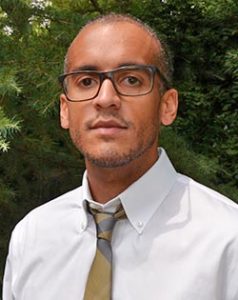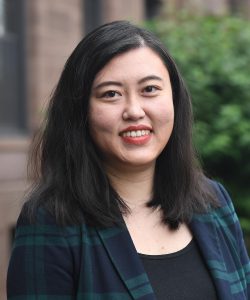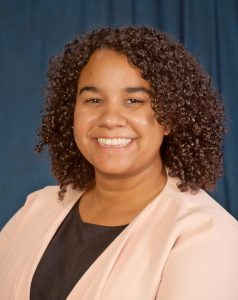Wesleyan Hires 14 New Ongoing Faculty in 2020–21

Wesleyan welcomes 14 new ongoing faculty to campus this fall, including five professors of the practice. They include:
Charles Barber, associate professor of the practice in the College of Letters, is a nonfiction author who writes about mental health and criminal justice issues, for both popular and scholarly audiences. He has previously taught at Wesleyan for eight years as a visitor, primarily as Writer in Residence in the College of Letters, and also in the Psychology and English departments, and Allbritton Center. He has written three books: Songs from the Black Chair: A Memoir of Mental Interiors, Comfortably Numb: How Psychiatry is Medicating a Nation, and Citizen Outlaw: One Man’s Journey from Gang Leader to Peacekeeper. Barber has been published in The New York Times, Washington Post, Salon, The Nation, and Scientific American MIND. Before becoming a full-time academic, he worked with homeless and incarcerated people for two decades, and conducted federally-funded studies on how to best engage such individuals into treatment and services. He also is a lecturer in psychiatry at Yale University.

Garry Bertholf, assistant professor of African American studies, holds a doctorate in Africana studies from the University of Pennsylvania, as well as a master’s degree in jazz and popular music studies from the University of Pennsylvania. He is working on two book projects. The first, titled The Black Charismatic: Demagoguery and the Politics of Affect, examines the performance, practice, and rhetoric of demagoguery in post-Civil Rights Black political leadership, showing in what ways this form of what he calls “the Black charismatic” threatens to make illusory what should be a vibrant Black public sphere based on substance rather than affect. The second, Afro-Pessimism and Black Optimism in Africana Literature, theorizes a distinctively literary genealogy of that antinomy (Afro-pessimism/Black optimism) by exploring earlier Africana texts that potentially give a new shape to the debates that currently circulate around that antinomy. Bertholf has published articles in south: a scholarly journal, Anthurium: A Caribbean Studies Journal, and in the edited volume Reconstruction at 150: Reassessing the Revolutionary “New Birth of Freedom.”
Youssef Ezzyat, assistant professor of psychology, received his BSE in electrical engineering from Princeton University and his PhD in psychology from New York University, and comes to Wesleyan from Swarthmore College, where he served as a visiting professor. His research program aims to better understand episodic memory organization and develop interventions for improving memory performance. His studies combine behavioral measurements with neural recordings (fMRI, EEG) and modeling to examine the organizing principles of the memory system. This year, Ezzyat is teaching an upper-level seminar on cognitive neuroscience, statistics, and a survey course on cognitive neuroscience.
Courtney Gaston, assistant professor of the practice of theater, holds an MFA in theatrical design from the University of Iowa focusing on lighting, scenic, and media design. Originally from Louisiana, she has worked as a freelance lighting designer for over a decade, as well as owned and operated a production company serving the Northwest Louisiana area. While in Iowa, she designed for many productions, including the premieres of several new works. Gaston worked on the Iowa New Play Festival for three years, as a designer and coordinator. She has designed for international projects, including a production at the Edinburgh Fringe Festival in 2018 and an ongoing research project titled “Media Clown,” which premiered in the Emerging Artist Series at the Prague Quadrennial in 2019. “Media Clown” explores the live interactivity of traditional performance and new technologies through motion capture, space tracking, and live content generation. Gaston is excited to be joining the Wesleyan faculty and is looking forward to the collaborations ahead.

Wei Gong, associate professor of the practice in East Asian studies, will be serving as Wesleyan’s new Chinese language coordinator. She has extensive language training and teaching experience, having taught at Princeton, Middlebury, Brown, Beijing Normal University, and the Inter-University Program at Tsinghua University before coming to Wesleyan.
Steven Moore, assistant professor of government, earned his BA at the University of South Carolina and his PhD in political science at the University of Michigan. Moore specializes in the study of American politics, with an emphasis on race and ethnic politics. His research challenges the dominant conventional wisdom in the racial and ethnic politics literature that discrimination evolves only out of out-group animus. One of his most important findings is that out-group affinity can also lead to discrimination in the form of racialized paternalism, under which support for interventions intended to help members of an out-group actually has the effect of limiting the freedom of the out-group. In 2019, Moore was awarded the prize for the best paper in political psychology presented at the 2019 annual meeting of the American Political Science Association. The paper is titled “The Road to Hell: Racialized Paternalism and Political Behavior.”
Tammy Nguyen, assistant professor of art, is a multimedia artist whose work focuses on the intersection of geopolitical realities and fiction by utilizing repetition, narrative and multimedia installations to address the topic of confusion. Nguyen will be teaching courses in printmaking. She received her BFA from The Cooper Union in 2007 and her MFA from Yale University in 2013. Nguyen’s work incorporates themes from divergent cultures and times to craft narratives that expand agglomerate racial, cultural, and political identities in order to sew confusion in her audience. The repetition of images and subjects demonstrates how one thing can offer multiple readings and multiple narratives, and create blurred identities. Viewers are encouraged to embrace the confusion they confront in the work with the hope that it may alter the way they see the world. Nguyen also is the founder of Passenger Pigeon Press (PPP), which brings together scientists, journalists, and artists to create politically focused, cross-disciplinary projects. She was the recipient of a Fulbright scholarship and the Van Lier Fellowship. Her work is included in the collections of Yale University, the Philadelphia Museum of Art, MIT Library, the Seattle Art Museum, the Walker Art Center Library, and the Museum of Modern Art Library.
Teresita Padilla-Benavides, assistant professor of molecular biology and biochemistry, obtained her doctoral degree in cell and molecular physiology from Centro de Investigacion y Estudios Avanzados del Instituto Politecnico Nacional in Mexico City. In 2010, she moved to Worcester, Mass., for post-doctoral work at Worcester Polytechnic Institute, where she studied the mechanisms for transport of transition metals across bacterial cell membranes. In 2014, Padilla-Benavides moved to the University of Massachusetts Medical School, where she further developed expertise in the areas of mammalian development and cell differentiation, which contributed to her current research interest in understanding how transition metals are involved in these processes. In 2016, Padilla-Benavides was awarded the prestigious Faculty Diversity Scholars Award from the University of Massachusetts Medical School, which has facilitated transition toward her independent career. Her laboratory combines diverse methodologies to investigate the biology and biochemistry of transition metals, in particular Cu metal in myogenesis and other cell differentiation paradigms where it is involved in transcriptional regulation, mitochondrial biogenesis, and cell signaling. Padilla-Benavides has published 31 primary research papers and reviews and two book chapters, reviewed over 70 manuscripts, and co-edited for the journal Frontiers. She has served on three NSF review panels for graduate research fellowships, and actively contributes as a reviewer for a variety of national conferences. In Mexico, she is an active member of the National Researcher System (SNI-1), in recognition by the Mexican Research Council for her outstanding contributions to science. In addition, Padilla-Benavides is actively involved with mentoring underrepresented groups, exemplified by her role as faculty advisor of the SACNAS-UMMS student chapter at the UMass Medical School, where she was honored by the 2017 SACNAS Outstanding Research and Professional Mentor Award. Padilla-Benavides is already actively pursuing equity and inclusion interests, including working with other faculty and students to establish a local SACNAS chapter.

Robyn Ridley, assistant professor of the practice in integrative sciences, earned her BS from Columbia University and both her MS and a PhD from the University of California, San Diego (UCSD) in materials science and engineering. She has an extensive research background in nanoparticle synthesis methods and nanocomposite materials, including previous projects on magnetic nanospheres and nanorods, semiconductor nanoparticles, ionic polymer metal composites (IPMCs), and ternary microemulsion systems for nanoparticle synthesis. Ridley also was an instructor and curriculum design team member for engineering and materials sciences courses and served as a professional development mentor to undergraduate students in the Summer Training Academy for Research Success while at UCSD. At Wesleyan, she will be teaching courses in engineering design, mechanics, and materials science with the IDEAS program.
Roberto Saba, assistant professor of American studies, received his BA in history from the University of São Paulo (2007), his MA in social history from the University of São Paulo (2010), and his PhD in transregional history from the University of Pennsylvania (2017). He has held prestigious fellowships and posts since then: a visiting fellow in the Weatherhead Initiative on Global History, at Harvard University (2017–18), a Hench Postdoctoral Fellow at the American Antiquarian Society (2017–18), a Henry G. Fairbanks Humanities Fellowship, Visiting Humanities Scholar-in-Residence, at St. Michael’s College (2018–20). Saba’s book-in-progress is currently titled American Mirror: The United States and Brazil in the Age of Emancipation. His research on the 19th- (and 20th- and 21st-) century Americas is deeply archival, impressively expansive, and pioneering. In particular, he has explored the complex and unexpected alliances and unexpected tensions between the last two slave societies to abolish slavery in the western hemisphere: the U.S. and Brazil. In the coming years, he will offer key courses in 19th-century history and deepen the department’s trans-national emphasis.
Edwin Sánchez, assistant professor of the practice in theater, is a playwright whose work includes La Bella Familia, Trafficking in Broken Hearts, I’ll Take Romance, Diosa, Unmerciful Good Fortune, Icarus, and Barefoot Boy With Shoes On. His work has been produced regionally throughout the United States as well as in Brazil, Russia, and Switzerland. Among his awards are the Kennedy Center Fund for New American Plays (CLEAN), three New York Foundation for the Arts Playwriting/Screenwriting Fellowships, the Princess Grace Playwriting Fellowship, the Daryl Roth Creative Spirit Award, and the AT&T On Stage New Play Award. He is on the advisory artist committee for NYFA and teaches playwriting at Wesleyan University and Primary Stages in New York. His novel, Diary of a Puerto Rican Demigod, is available through Amazon. His play Unmerciful Good Fortune is currently under option with Eperanza Films.
Sadia Quraeshi Shepard, assistant professor of film studies, is a writer and documentary filmmaker. Her research and teaching is primarily concerned with observational documentary filmmaking, the craft of literature-to-film adaptations, and autobiographical storytelling. The author of The Girl from Foreign: A Memoir (The Penguin Press), Shepard’s writing has appeared in The New Yorker, The Washington Post, The New York Times, and Guernica. Her credits as a documentary film producer include The September Issue (A&E Films) and The Education of Mohammad Hussein (HBO). Her films have screened at the Sundance Film Festival, LA Independent Film Festival, Full Frame Documentary Film Festival, Mill Valley Film Festival, New Orleans Film Festival, Ann Arbor Film Festival, Margaret Mead Film Festival (Opening Night Selection), and others. She is the founder and creative director of Profile This!, a creative writing and photography workshop for Arab, Persian, South Asian, and Afghan youth in New York City. She holds an AM in communication from Stanford University and an MFA in creative writing from Hunter College.
Emily Stark, assistant professor of mathematics, is an expert in geometry and topology. She spent five years as a postdoctoral researcher, including a year at the University of Haifa, three years at the Technion-Israel Institute of Technology, and a year at The University of Utah. She received her PhD from Tufts in 2015, was an undergraduate at Pomona College, and spent a semester in Hungary at the Budapest Semesters in Mathematics program.
Balazs Zelity, assistant professor of economics, obtained his BA in international business from the Budapest Business School in Hungary, his MA in economics from the Universite Catholique de Louvain in Belgium, and his PhD in economics from Brown University. His research explores how demographics, institutions, and international capital flows shape countries’ economies in the medium-to-long run. During this academic year, he will be teaching the department’s required intermediate macroeconomics course as well as electives in international and demographic economics.

